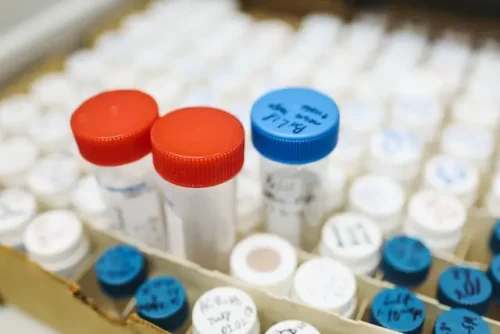
How To Prepare For Your Plastic Surgery
Deciding to undergo plastic surgery is a major step that requires thoughtful prepare your mind and body. Whether you’re interested in a procedure to enhance your appearance or reconstructive surgery to improve function, proper planning is essential for ensuring optimal results.
Proper planning reduces stress and anxiety leading up to the big day. Being proactive allows you to recover smoothly after your procedure as well. Follow this complete guide to prepare your mind, body, and logistics for plastic surgery.
1) Do thorough research to choose your surgeon
The most important preparation step is selecting the right plastic surgeon. Your doctor will be with you every step, from consultation and planning to surgery and recovery. Taking time to research and vet potential surgeons helps you find the best match. Some factors to consider when screening providers:
- Education background: Verify the qualifications from an accredited medical school and board certification in plastic surgery specifically.
- Specialized training and fellowships: Look for advanced fellowship training in your specific procedure.
- Before and after photos: Evaluate examples of their work for aesthetic sensibilities aligned with your goals.
- Hospital privileges: Surgeons should be credentialed at accredited local surgical facilities.
- Experience: More complex procedures require doctors with extensive hands-on case experience to minimize risk.
- Consultation style: Choose a surgeon who listens attentively to your needs and explains options clearly.
- Facility accreditation: Any clinics or surgical centers should have current AAAASF or AAAHC safety accreditation.
Vetting qualifications thoroughly gives confidence you’ve selected a qualified, trustworthy provider. Experienced groups like Plastic Surgery Associates with top credentials and training instill patient confidence.
2) Have an in-depth consultation
Schedule a personal consultation with your prospective surgeon. Come prepared with questions to ask so you can make an informed decision. Key topics to cover include:
- Procedure overview: Understand in detail what the surgery entails from start to finish.
- Your goals: Communicate desired improvements to help guide surgical planning.
- Options: Discuss different techniques, variations, or combinations to meet goals.
- Recovery details: Learn expected timeframes, discomforts, and restrictions for healing.
- Risks and safety measures: Review potential complications and steps to minimize them.
- Logistics: Address scheduling, anesthesia, facility, pre and post-op care coordination.
- Costs: Review total fees, payment options, and insurance coverage if applicable.
A thoughtful consultation covers all aspects of your upcoming operation. The right surgeon will answer your questions thoroughly and describe how they will customize care for you.
3) Have pre-procedure screening and labs
Plastic surgery requires clearance that you are healthy enough for anesthesia and the operation. Your doctor will order:
- Physical exam and medical history review
- Lab testing – bloodwork, urinalysis, possibly chest X-rays
- EKG to check heart health if you are over age 45
Be open about any conditions or medications that could impact surgery or recovery. Pass all required screenings before getting the green light to proceed. Health optimization before surgery reduces complications and supports healing. Pre-procedure clearance is essential.
4) Stop smoking and adjust medications
To prevent complications, your surgeon will require:
- Stopping smoking at least 2 months before surgery. Smoking impedes healing.
- Avoiding blood-thinning medications like aspirin and anti-inflammatories, which increase bleeding risk during surgery. Follow your surgeon’s guidelines on stopping these pre-procedures.
- Halting any hormone treatments at the recommended time point pre-surgery if undergoing transgender procedures.
Adjust any other medications only under your physician’s guidance. Staying on a regimen is important for conditions like high blood pressure, but your doctor will direct any special precautions.
5) Make dietary changes to optimize healing
Nutrition adjustments before plastic surgery help prepare your body:
- Hydrate well in the weeks preceding surgery by drinking at least 64 ounces of water daily. Proper hydration prevents complications from anesthesia.
- Eat high-protein foods like poultry, eggs, dairy, beans, and nuts that provide the building blocks for wound healing.
- Increase consumption of fruits and vegetables rich in vitamins A, C, and zinc, boosting immune function.
- Avoid alcohol for 1-week pre-surgery as it can interact poorly with anesthetics.
- Stop herbal supplements 2 weeks before surgery as they may increase bleeding risk.
Your body needs key nutrients and hydration to bounce back most effectively from surgery. Discuss any special dietary recommendations with your surgical team.
6) Adjust fitness routine leading up to surgery
Being active promotes stamina before an operation, but certain changes must be made:
-
- Cut back on strenuous workouts at least 2 weeks before surgery. This helps conserve energy reserves.
- Shift to lower-impact activities like walking, swimming, and gentle yoga. Avoid injury risks.
- Stop any heat therapies like saunas, steam rooms, or hot tubs that can dehydrate your body.
- Notify your trainer and gym of upcoming limitations so they can tailor your regimen accordingly in preparation.
With your doctor’s guidance, remain active pre-surgery without overtaxing your body. Smart training adjustments optimize preparedness.
7) Stock up on recovery supplies
Gather any supplies your doctor recommends having on hand after surgery.
- Pain medication: Fill prescriptions so you have adequate relief aids ready.
- Surgical garment: Have any prescribed compression garments or supportive braces.
- Cold compresses: Ice packs help minimize swelling and bruising.
- Saline spray: Keep incisions moisturized to prevent scabbing.
- Skincare: Purchase any ointments, creams, or gels your surgeon recommends for incision sites.
- Healthy snacks: Stock up on nutrient-dense foods and hydrating drinks to fuel healing.
- Distractions: Queue up books, magazines, and movies to keep you entertained during long rest periods.
Having tools to make recovery more comfortable and ready at home prevents urgency if post-surgical pain or swelling arises.
Read More: 8 Things to Consider Before Opting for a Nose Job
8) Consider financing options if needed
Out-of-pocket expenses for plastic surgery can range from several hundred dollars to tens of thousands, depending on your procedure and insurance coverage. If upfront costs pose a barrier:
- Ask about payment plans: Many surgeons offer in-house financing options and extended pay timelines.
- Apply for medical credit cards: Cards like CareCredit offer deferred interest payment plans for procedures.
- Use crowdfunding platforms: Sites like GoFundMe allow you to request contributions from your community.
- Re-evaluate budget: Look for areas to trim spending to dedicate more to your goal.
With the right financing strategy, transformative procedures can be affordable. Weigh options responsibly to find the best approach for your needs.
Conclusion
Preparing thoroughly for plastic surgery is important for achieving the best possible outcome. With diligent self-care and a commitment to following post-op directions, you can move through surgery and recovery smoothly. Approaching this life-changing procedure thoughtfully and systematically prepares you to realize your aesthetic goals safely and successfully. The investment made in preparing mind, body, and spirit will pay dividends in your boosted confidence, optimism, and well-being for years to come.



